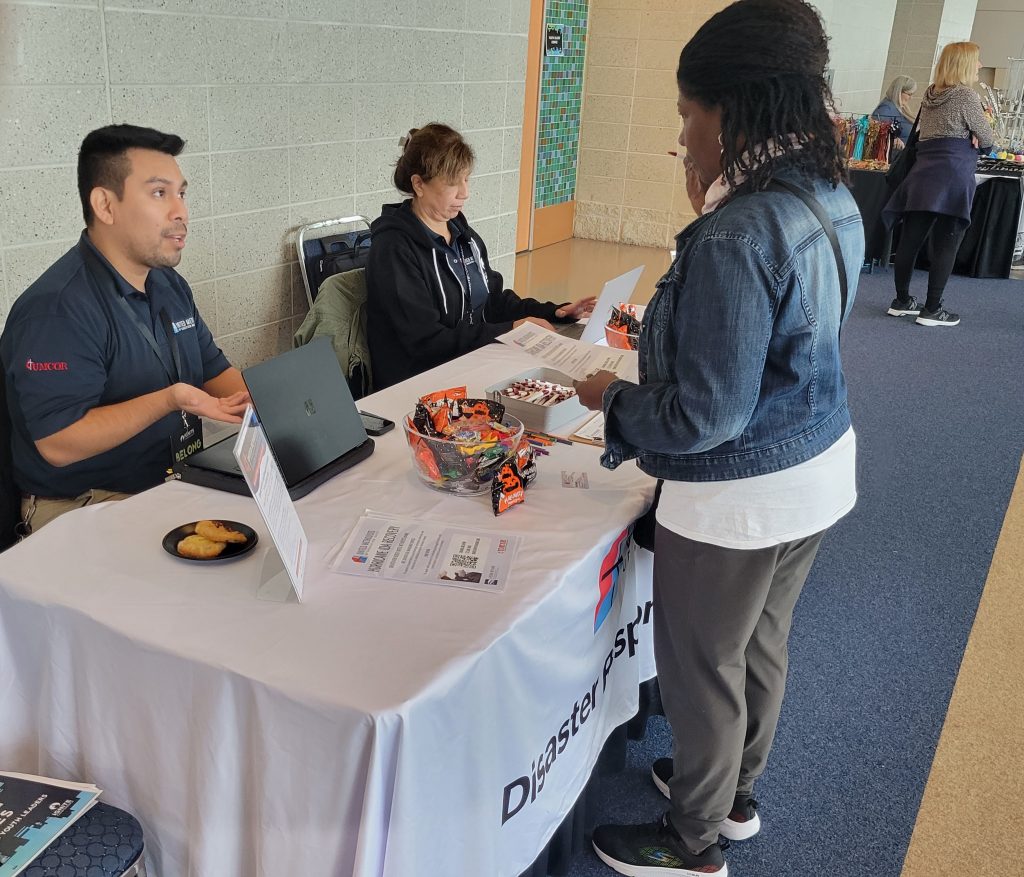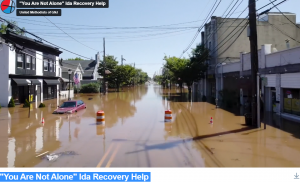 Unfortunately, many have witnessed firsthand the destructive power of Mother Nature. Natural disasters occur everywhere, leaving cities and towns blanketed in ruin. Victims of Hurricane Ida are still trying to recover from nature’s wrath from two years ago.
Unfortunately, many have witnessed firsthand the destructive power of Mother Nature. Natural disasters occur everywhere, leaving cities and towns blanketed in ruin. Victims of Hurricane Ida are still trying to recover from nature’s wrath from two years ago.
Helping people come back from such devastation is hard work. But when people’s lives fall apart, there are important individuals behind the scenes helping to piece things back together. Disaster case managers give of themselves to help disaster survivors get the assistance they need; and they should be recognized for the good work they do.
Survivor Maria Castrillo recalls her hurricane ordeal as terrifying. With no warning, her apartment was suddenly under water, trapping her family there all day. Eventually, they had to leave carrying bins of clothes, treading through dirty water, her three children following with backpacks filled with some clothes and essentials. They walked miles to a shelter that was full, and then had to travel by bus to another shelter. They stayed for two weeks and then moved into a hotel for six months.
Everything they left behind was contaminated or destroyed and had to be thrown out. “We had to start from zero,” Maria says. FEMA gave them some funds to pay for the hotel, but it wasn’t nearly enough. She tried to use her savings, but it still wasn’t enough.
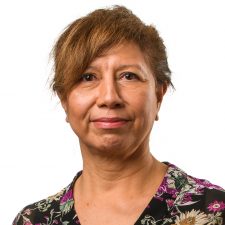
Bianca Shumanov
The United Methodist Church of Greater New Jersey has been a blessing to many survivors like Maria, offering them major assistance through Disaster Case Management and often doing more than the government. Case manager Bianca Shumanov directed Maria to resources she didn’t know about, and even helped her get TRA (temporary rental assistance) from Social Services. With Bianca’s help, Maria received funding from Compass 82 and the Salvation Army to help rebuild her life.
Disaster recovery is both challenging and rewarding. The essential partnership between case managers and clients is built on communication, resourcefulness and a tremendous amount of trust and support. Disaster relief could not take place without financial assistance, which is why case managers are grateful for local partners who have aided their boots-on-the-ground efforts.
New Jersey Voluntary Organizations Active in Disaster (NJVOAD) is a network of recovery groups that provides a wide range of services to promote resiliency. Compass 82, with funds from the American Red Cross, helps communities navigate difficulties in disaster recovery. The Salvation Army’s services go beyond relief to recovery, providing food, shelter, household needs and emotional support. The United Way of New Jersey is also a generous source of funding, resources and volunteers. And the United Methodist Committee on Relief (UMCOR) joins local churches in providing grants and donations to support people in need.
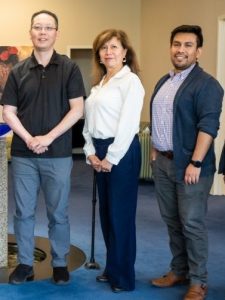
GNJ Disaster Response Case Managers (from left) Andy Chan, Bianca
Shumanov and Raul Nombera-Bueno. Corbin Payne photo
Disaster Case Management Supervisor Raul Nombera spends most of his time behind the scenes working with generous partners. His job is also to make sure everything runs smoothly and that his own team follows through with goals and submits forms properly.
Meanwhile, Bianca works tirelessly, researching programs and resources and trying to connect clients with helpful partner agencies and grants, especially for Spanish-speaking clients for whom navigating the system is even harder. She goes above and beyond her regular duties to do whatever it takes to make people’s lives whole again. “I have the resources at my fingertips,” Bianca says, “and I don’t mind doing it.”
There are many steps to her work, starting with a screening to see if clients are eligible, according to program guidelines. Then comes a face-to-face visit in the home, if the family is not displaced, to get a profile of their situation and their needs.
Next Bianca goes back to her case management team to present her case and advocate for helping the client. Their approval leads to a return visit to verify needed documents and start the process. If rental assistance, furniture or household items are needed, Bianca will work with local partners to make it happen.
She may also try to procure emotional support services, especially for children traumatized by disaster. Hurricane Ida’s flooding struck in the middle of the night while people were asleep. Some had to wait until morning to leave, but those at risk of drowning had to get out immediately, while trying to save their children, elderly relatives and pets. So, it’s understandable that trauma would result.
The full extent of the damage, both physical and emotional, is not always evident because people often just adapt to a bad situation if they have no other choice. One thing that often goes unseen is mold. It’s a silent killer that many people are still dealing with two years after the hurricane.
A lot of people are still trying to recover physically and mentally. “Even now when it rains,” says Maria, “I get so scared because I don’t know what’s going to happen.” But having Bianca’s constant help gives her comfort.
However, constant helpfulness can take a toll on case managers as well. “Many of these survival stories are upsetting,” Bianca explains. “And two years later they are still stressed and traumatized.” When she feels the emotional toll on herself, she puts her health care training to good use and manages her own emotions. “You can’t help people if you’re traumatized yourself,” she said. “Of course, you have empathy, but you have to push through it to focus on the client’s needs and get the job done. Then you can grieve later.”
Maria appreciates that focus on her needs. “Bianca has been an angel, getting me rental assistance, furniture, new appliances, and making everything so much easier,” she said. “I’m grateful for everything she did. It felt like someone had my back and I wasn’t alone. She made it easier to overcome and feel normal again.”
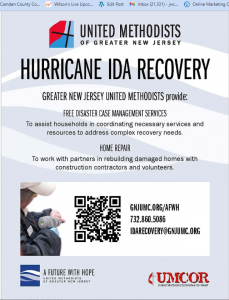 GNJ’s disaster case managers continue to be a light in the darkness for so many in need. People need to know they are there to offer help and hope. Maria went through so much and wanted to give up before she met Bianca. Her advice to anyone in her situation is, “Never give up. You can always come out the storm.”
GNJ’s disaster case managers continue to be a light in the darkness for so many in need. People need to know they are there to offer help and hope. Maria went through so much and wanted to give up before she met Bianca. Her advice to anyone in her situation is, “Never give up. You can always come out the storm.”
“We are still here, trying to assist more hurricane survivors,” said Raul. “We have made a lot of progress with people’s recovery, but we know there is still more work to be done. There are still more people out there who need help. We want our community’s help in pushing our name out there to help reach anyone who needs us.”
Read Part 2 of this extended article on GNJ’s Disaster Recovery Case Management efforts on the GNJ website in December 2023.
For more information about GNJ’s hurricane relief ministry and to donate needed funds, visit our web page “A Future with Hope” (https://www.gnjumc.org/afwh/). Watch our video, “You Are Not Alone,” available in English and Spanish. Also, visit our Volunteer web page and watch the video, “Rebuild Homes, Rebuild Lives: A Call for Volunteers.”
For more information contact Andrea Wren-Hardin, GNJ Disaster Recovery Coordinator at awrenhardin@gnjumc.org.

